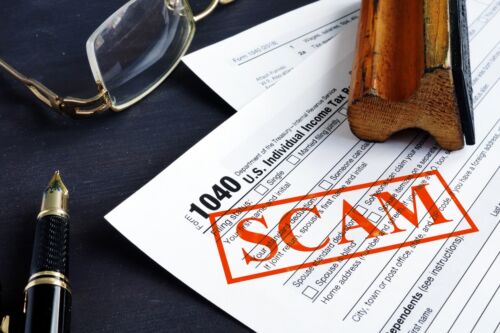


The IRS is tasked with enforcing all aspects of federal tax compliance. Nonetheless, the IRS may emphasize certain aspects of tax compliance depending on the priorities of the current administration. Under President Trump, the IRS has signalled a shift in its investigation and enforcement priorities to focus on financial crimes with ties to border security as part of a broader federal policy that emphasizes immigration enforcement. Yet, even as federal tax fraud prosecutions have declined since this time last year, individuals and business owners should remain vigilant and compliant, even if there is less risk of an IRS audit or criminal prosecution.
Even though the IRS has signaled changing enforcement priorities, businesses and individual taxpayers should understand what constitutes tax fraud, what the IRS looks for when investigating possible tax fraud, and how to respond if you find yourself under investigation.
Tax fraud occurs when an individual or business intentionally provides false information on a tax return to avoid paying taxes. Tax fraud and tax evasion are similar crimes that differ primarily in the severity and extent of the alleged deception.
The IRS Criminal Investigation unit is responsible for investigating cases of potential tax fraud. Common “red flags” that federal investigators look for when investigating potential tax fraud include:
If you suspect you are under investigation, you should act quickly to protect yourself.
To protect yourself and minimize the chances of being investigated for tax fraud, businesses and individual taxpayers should:
Whether you are running a business or filing a complex personal return, remain vigilant and assume scrutiny from the IRS is still possible.
If you have employees, review compliance policies. As the IRS increases its focus on unauthorized labor and employment tax fraud, be sure that employment eligibility documentation is accurate and up to date.
As the IRS moves to an increasingly automated process, even simple returns may be subjected to additional scrutiny. This could mean additional audit activity in areas that are easier to review with algorithms, like tax returns for small businesses, sole proprietors, and individual taxpayers claiming refunds and credits.
Learning that you are under investigation for potential tax fraud requires a swift and strategic response from a qualified and experienced professional.
Hope Lefeber has been representing people accused of tax fraud, tax evasion, and other white-collar federal crimes for over 30 years. She represents business owners, individual taxpayers, tax preparers, accountants, CPAs, and others who are under investigation or facing criminal charges for tax fraud, tax evasion, and other white-collar crimes. Ms. Lefeber works with a team of expert forensic accountants and investigators to analyze and deconstruct complex criminal tax cases to achieve optimal outcomes and minimize tax losses for her clients. She will carefully examine your financial situation to identify the most effective defense strategy with the singular goal of reducing or eliminating the potential criminal penalties.
To learn more about Ms. Lefeber and how she can assist you, contact the Law Office of Hope Lefeber today to schedule a confidential appointment to discuss your situation.
© 2025 Law Offices of Hope Lefeber| View Our Disclaimer | Privacy Policy